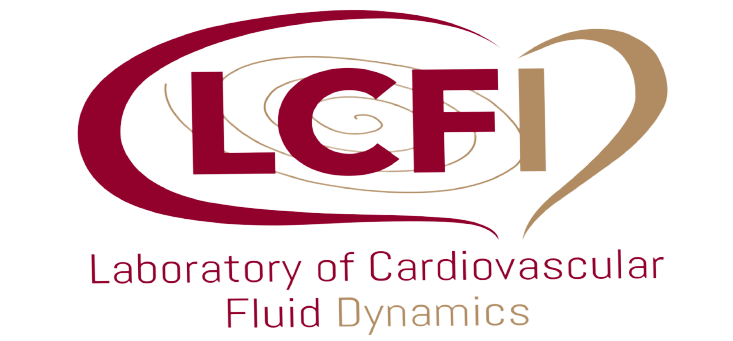
WELCOME TO THE LABORATORY OF CARDIOVASCULAR FLUID DYNAMICS
Disclaimer: By downloading the .pdf files below, you recognize that it is for your personal use only.
Note: For your convenience, publication are grouped in different categories.
You can find all the publications here.
Prosthetic heart valves

Mechanical heart valves
transcatheter valves


The mitral valve is the valve that separates the left atrium from the left ventricle. Vortex formation in the left ventricle is caused by the shear layer separation on the leaflets of the mitral valve. The vortex rings are one of the characteristic features in left ventricular flow.
The pulmonary valve is located in the right side of the heart, separating the right ventricle and the pulmonary vein.


The aortic valve is the valve that separates the left ventricle and the aorta. Aortic regurgitation is a disease that allows blood to flow back in the ventricle during the dilation phase. This results in a regurgitant jet that is
The pulmonary valve is located in the right side of the heart, separating the right ventricle and the pulmonary vein.

Other

blunt traumatic aortic rupture
coarctation of the aorta
=


pediatric cardiology
Fluid mechanics

lagrangian analysis
modal decomposition


smoothed particle hydrodynamics
general fluid mechanics


Heat transfer
Book chapters
Labrosse MR and Kadem L. Experimental Methods in Cardiovascular Mechanics. In Cardiovascular Mechanics edited by Labrosse MR. CRC Press 2019.
Kadem L. Aortic Stenosis and Systemic Hypertension: See Beyondb the Valve. Heart Valves: Disorders, Repair, and Replacement, Nova Science Publishers, 2009.